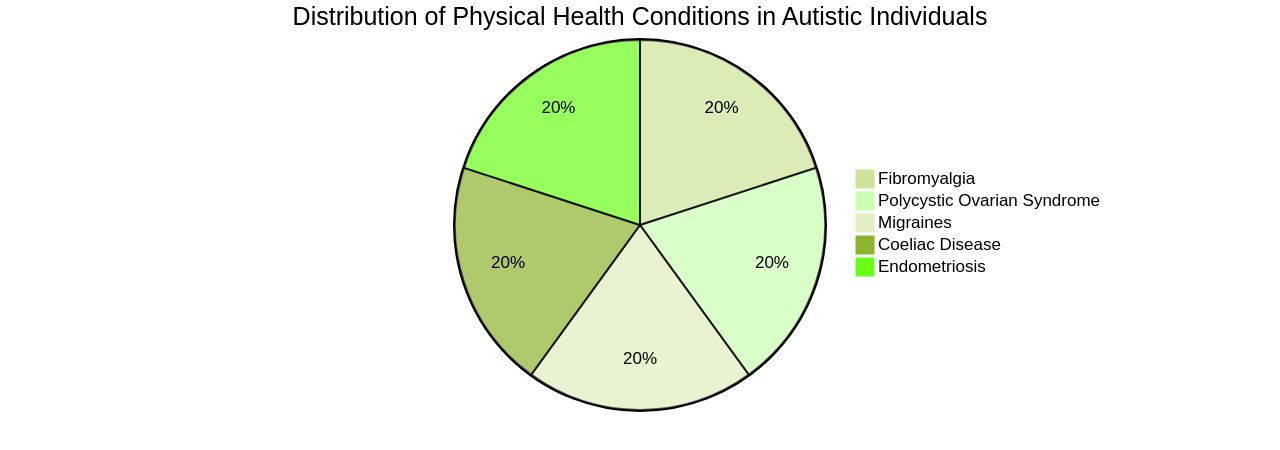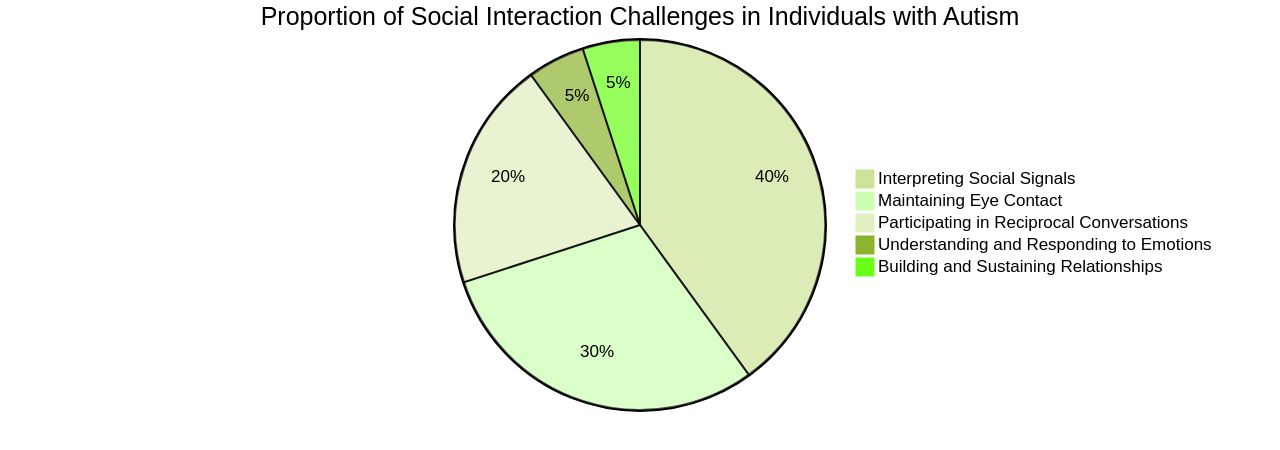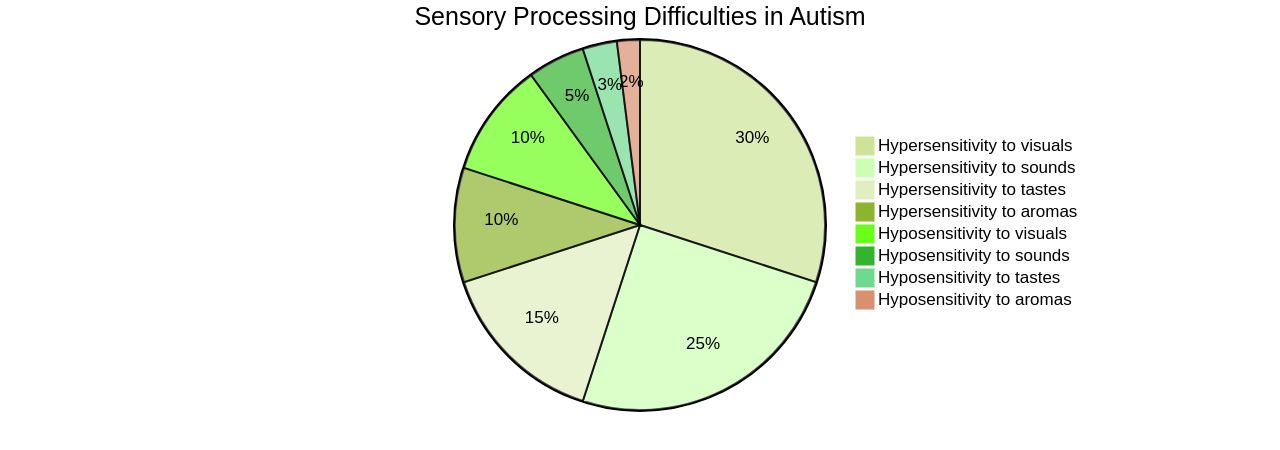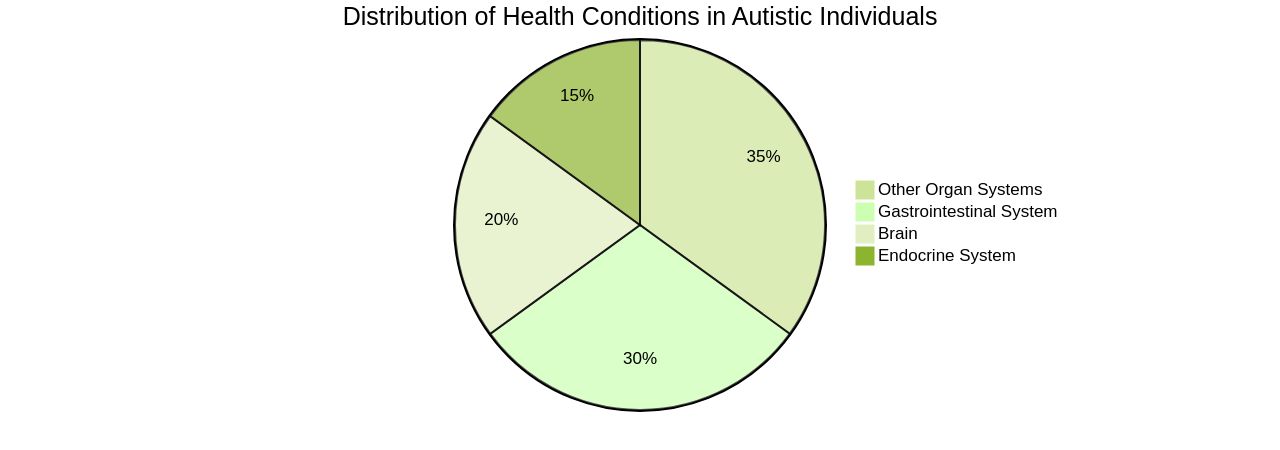Introduction
Autism spectrum disorder (ASD) is a complex neurodevelopmental condition that presents a range of behavioral, social, and communication challenges. From difficulties in social interactions to repetitive behaviors and sensory processing issues, autism affects individuals differently. Moreover, research has revealed that autistic individuals are more likely to experience physical health conditions across various organ systems.
Understanding the specific needs of autistic individuals is crucial for providing adequate support and ensuring their well-being. In this article, we will explore the symptoms of autism, including social interaction challenges, repetitive behaviors, and sensory processing issues. We will also discuss the impact of these symptoms on daily life and the importance of early identification and support.
What are Autistic Symptoms?
Autism spectrum disorder (ASD) is a neurological and developmental condition that affects individuals differently, presenting a range of behavioral, social, and communication challenges. It is characterized by difficulties in social interactions, a propensity for repetitive behaviors, and sensory processing issues. ASD is not limited to these symptoms, however, as research has revealed a broader range of health vulnerabilities among autistic individuals.
A study led by Dr. Elizabeth Weir at the Autism Research Center in Cambridge found that autistic people are more likely to experience 'physical health multimorbidity,' having at least two or more physical health conditions across different organ systems. This includes conditions such as fibromyalgia, polycystic ovarian syndrome, migraines, coeliac disease, and endometriosis. These findings underline the increased health vulnerability of autistic individuals, requiring a multifactorial understanding of these increased risks.
Additionally, research from the University of Virginia has highlighted structural differences in the brains of autistic and non-autistic individuals. Using Diffusion MRI, the team developed mathematical models of brain microstructures, furthering our understanding of ASD. This is an area of ongoing research, with the goal of providing better support and strategies for individuals with ASD and their caregivers.

Social Interaction Challenges
Autism is often characterized by social interaction challenges. It's not unusual for those with autism to find tasks such as maintaining eye contact, interpreting social signals, and participating in reciprocal conversations difficult.
This can make it hard for them to understand and respond to emotions, complicating their ability to build and sustain relationships. Research from the University of Geneva shows that unlike their peers, autistic children often show a preference for non-social stimuli like textures or geometric shapes instead of faces or social interactions.
This unique attentional preference suggests that their developmental trajectory differs from typically developing children. This insight calls for early interventions that can enhance social attention and help these children follow a developmental path more similar to their peers.
It's also worth noting that according to a study involving autistic mothers with autistic children in mainstream education, the system, not individuals, is often the main challenge when seeking support for their children. The mothers often felt the need to fight for the right support.
Furthermore, the prevalence of autism is increasing in the United States, with boys being more than three times as likely as girls to be diagnosed. This highlights the necessity for timely services and interventions for children with developmental disabilities. Autism is a spectrum, and as such, experiences and characteristics can vary significantly across individuals. As clinicians at Columbia’s Lieber Recovery Clinic pointed out, it's not uncommon for an autism diagnosis to take years or even decades. This is because presentations of autism vary tremendously from person to person. Hence, understanding the specific needs of autistic individuals instead of referring them to often unavailable specialists is crucial.

Repetitive Behaviors
Autism, a complex neurodevelopmental disorder, often presents with autistic symptoms, specifically repetitive behaviors, which are a key characteristic of the condition. Autistic symptoms may be observed as physical movements such as hand flapping or rocking, or even as recurring speech patterns. Autistic symptoms, such as an ingrained need for sameness and a structured routine, are also prevalent among individuals with autism, causing notable distress when disrupted.
Neuroimaging studies have revealed distinct differences in the brain structure of individuals with autistic symptoms when compared to neurotypical individuals. However, the precise cause of autistic symptoms remains elusive, with ongoing research exploring the links between heredity, genetics, and medical conditions. It's important to debunk the misconceptions surrounding the cause of autism; it's neither a result of vaccinations nor parenting styles or nutrition.
Autism is typically diagnosed by age 3, though autistic symptoms can be observed in infancy, becoming clearer as the child grows. The presence of autistic symptoms, ideally identified by age 4, significantly increases the likelihood of receiving necessary services. The gender gap in autism diagnosis is notable, with boys being four times more likely to be diagnosed than girls, showing autistic symptoms.
Underdiagnosis may occur due to the unique presentation of autistic symptoms in girls. Interestingly, certain behaviors, often seen as challenges, may actually serve as coping mechanisms for individuals exhibiting autistic symptoms. Autistic symptoms, such as repetitive behaviors, could provide a sense of comfort and control, thereby reducing the severity of social-communication difficulties and mental health issues.
It is important to note the risk of wandering, especially among children aged five to nine with communication challenges, who exhibit autistic symptoms. The presence of autistic symptoms poses a significant public health concern, with studies revealing that one to two-thirds of children with autistic symptoms are prone to wandering. Therefore, understanding autism and its diverse manifestations is key to providing adequate support and care for those affected by this condition.

Sensory Processing Issues
Autism, a complex neurodevelopmental disorder, frequently manifests sensory processing difficulties, leading to overstimulation. This can cause hypersensitivity and hyposensitivity to various stimuli such as visuals, sounds, tastes, and aromas.
For instance, a person with autism might feel overwhelmed in a noisy environment or indulge in intense sensory activities like spinning or jumping. Efforts have been made to comprehend the sensory environments of autistic individuals better using methodologies like informant-based surveys and environmental appraisals.
The goal is to pinpoint the sensory needs of autistic individuals and assess if these needs are being fulfilled in their environments, such as home or work. Overstimulation in Autism Spectrum Disorder (ASD) can be a significant hurdle.
Sensory overload can occur when the brain is overloaded with more sensory information than it can process. Fortunately, there are several strategies available to manage this, such as crafting a sensory-friendly environment or employing social stories to improve understanding of social situations and expectations.
The origin of Autism is still elusive, but research is probing various theories, including heredity, genetics, and medical issues. Brain scans reveal differences in the brain's shape and structure in individuals with Autism versus typical development.
Misinformation has led to misconceptions about the cause of Autism, debunking theories related to vaccines, parenting styles, or nutrition. Instead, patterns of Autism or related disabilities in multiple families support a genetic basis for the disorder. In conclusion, comprehending sensory processing issues in autism is vital for offering suitable support and enhancing the quality of life for individuals with Autism. For more in-depth insights, www.asd. Media provides unlimited digital access with a subscription. The rates are affordable, with two options: $130 per year or $5-7 per month, making it easier for parents and advocates to access the resources and support they need.

The Impact of Autistic Symptoms
Autism, a neurodevelopmental disorder, can significantly impact an individual's daily life, affecting their communication, social activities, and routine tasks. However, it's crucial to know that these traits do not define one's intelligence or potential.
Autistic individuals, with adequate support and interventions, can indeed flourish and realize their full potential. Research has shown that autistic people are more likely to experience physical health conditions across various organ systems, emphasizing their increased health vulnerability.
This stresses the need to understand the causes of these increased risks. Our society often misunderstands, excludes, and rejects neurodivergent individuals, leading to immense stress, and this is an issue that needs to be addressed.
Autism spectrum disorder, although primarily viewed as a childhood disorder, is a lifelong condition that requires support across the individual's lifespan. Early identification, establishing a solid foundation from childhood through adolescence, and providing support that enhances quality of life and independence are critical areas where autistic individuals need services. It's also important to note that the presentation of autism varies widely, with many individuals receiving a diagnosis much later, often in adulthood. Therefore, understanding the specific needs of autistic patients is vital for their well-being. With minimal additional training and a willingness to learn, practitioners can provide the necessary support to these individuals.

Conclusion
In conclusion, autism spectrum disorder (ASD) presents a range of challenges in behavior, social interaction, and communication. Autistic individuals are more vulnerable to physical health conditions, emphasizing the need for a comprehensive understanding. Early interventions for social interaction challenges can enhance developmental progress.
Recognizing system barriers is crucial in seeking support. Repetitive behaviors provide comfort and control, and early diagnosis improves access to services. Sensory processing issues require creating sensory-friendly environments and employing strategies like social stories.
Autism significantly impacts daily life but doesn't define intelligence or potential. Understanding the specific needs of autistic individuals empowers them and ensures their well-being. By providing early identification and support, we can help them flourish and realize their full potential.




